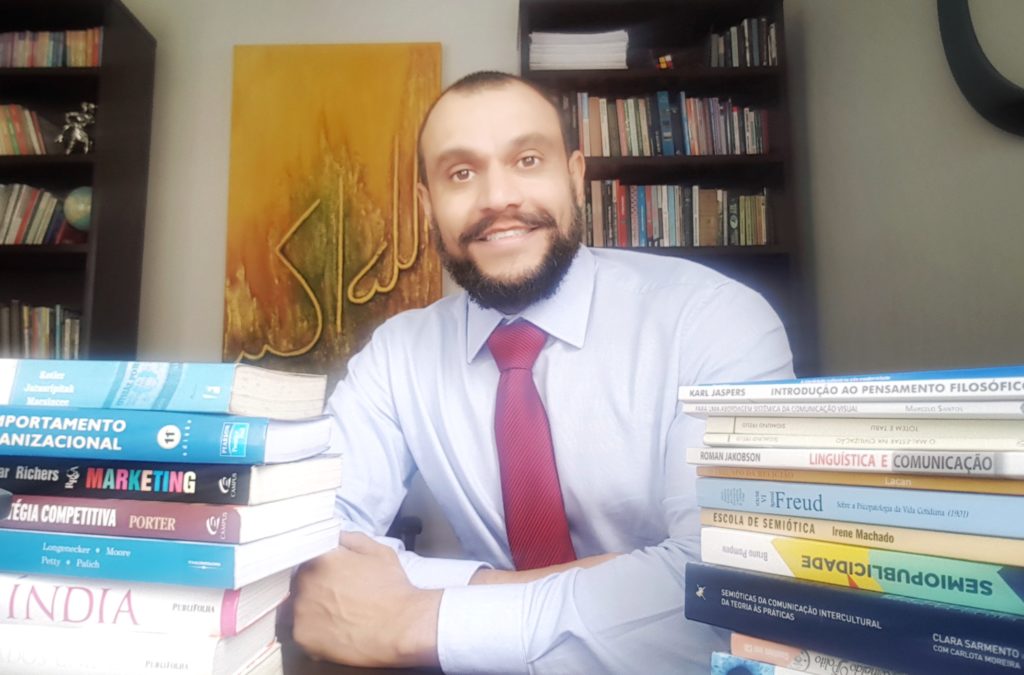By Rodrigo Solano
When thinking about international competitiveness, it is not uncommon for aspects of a low product or service price to come to mind, making perfect sense. However, it must not be forgotten that business success involves three other Ps of the so-called Market Mix (Price, Product, Promotion, and Place) and for this set to be put into practice, knowledge is required.
According to a report by the Brazilian National Bank for Economic and Social Development (BNDES), among the actions that can contribute to trade opening and internationalization are investments in education and human capital. This aspect is consistent with the interdisciplinary approaches that involve semiotics and international marketing.
In a simplified way, competitiveness in the international environment and other aspects are related to the ability of organizations to interact with the desires of their buyers through the way they communicate. It involves building a repertoire based on your vision, mission, and values reflected in the aggregated products and services, in the commercial advertisement through the brand, identity, communication works, negotiation, and choosing the channel that is most in tune with the business.
Therefore, success in international operations depends on human training for the knowledge of the target markets, which goes far beyond the volumes already sold and includes general knowledge about the world, which is also called the international mindset and, mainly, the understanding of the culture of each market, considering its changes over space and time, in addition to platforms such as Facebook, Instagram, LinkedIn, and virtual negotiations.
The market size often has little to do with the amount imported of a product classified under a particular international harmonized code. That would be a starting point. But it is essential to estimate how many buyers a company’s communication strategy will generate a desire to prefer its products over others.
In this sense, it is crucial to seek constant updating and knowledge in training courses, specialized literature, and interdisciplinary and international educational projects, especially those conducted by researchers experienced in the subject. Knowledge should provide support for daily activities, enabling the collection of more accurate information and enabling adaptations to take advantage of current opportunities.
For example, I recently carried out a survey focused on Brazilian characteristics in the most significant hypermarkets in the world. The result points to opportunities for Brazilian companies, especially in the food, fashion, and beauty segments. Like me, there are now researchers and organizations whose goal is to study aspects related to internationalization.
Among the most recent research, I can mention that produced by Silvana Gomes, Marketing & Content director at the Arab Brazilian Chamber of Commerce, related to adding value to products exported through servitization. Regarding intercultural communication, among the outstanding examples are the productions and activities developed by Professor Maria Aparecida Ferrari at the School of Communication and Arts at the University of São Paulo (USP) and Professor Diego Bonaldo Coelho, at the Escola Superior de Propaganda and Marketing (ESPM), which have developed courses aimed at internationalization. There are certainly more researchers and institutions that put internationalization at the heart of their work.
Among the organizations that may be at the forefront of providing information that contributes to the successful internationalization of executives and entrepreneurs through training are chambers of commerce, federations, professional associations, and trade promotion entities. Keeping up to date through these organizations can make a big difference when considering internationalization since human knowledge underpins and enables competitive and sustainable performance development.
Rodrigo Solano is a master in communication specializing in intercultural communication for organizations and the author of two books on internationalization. He currently supports the internationalization of projects at Think Global www.thinkglobal.com.br
Translated by Elúsio Brasileiro
The opinions expressed in the articles are the responsibility of the authors.




